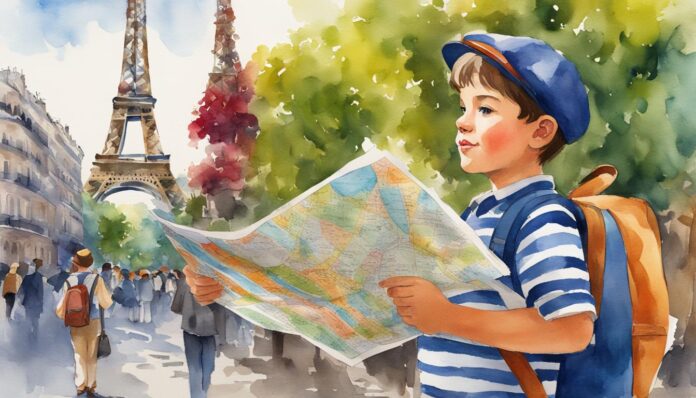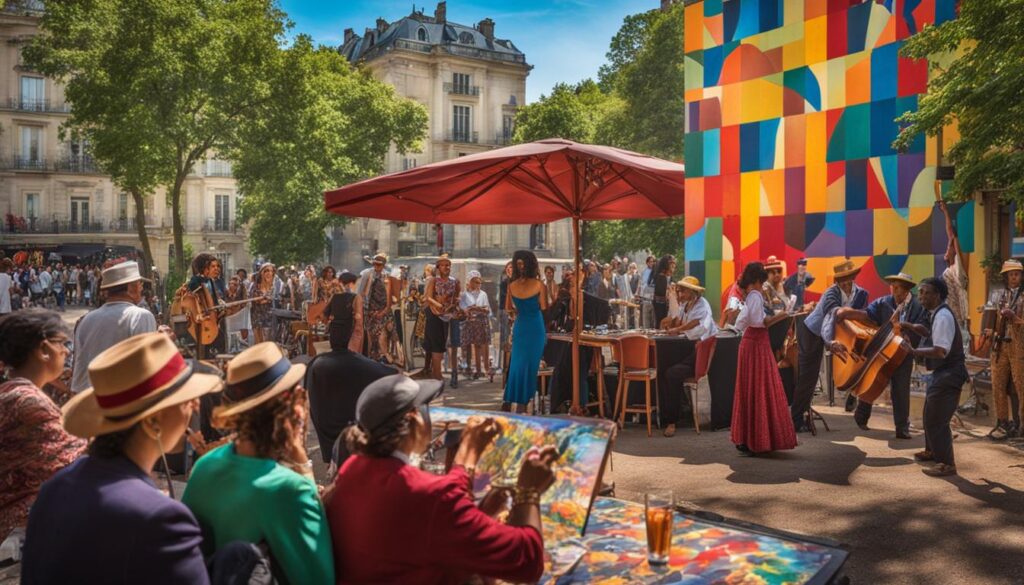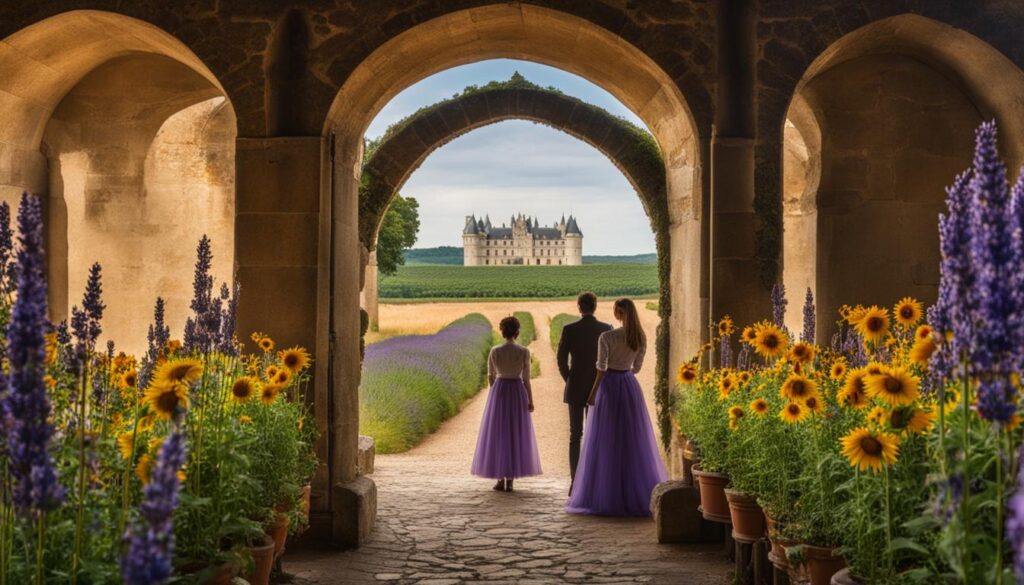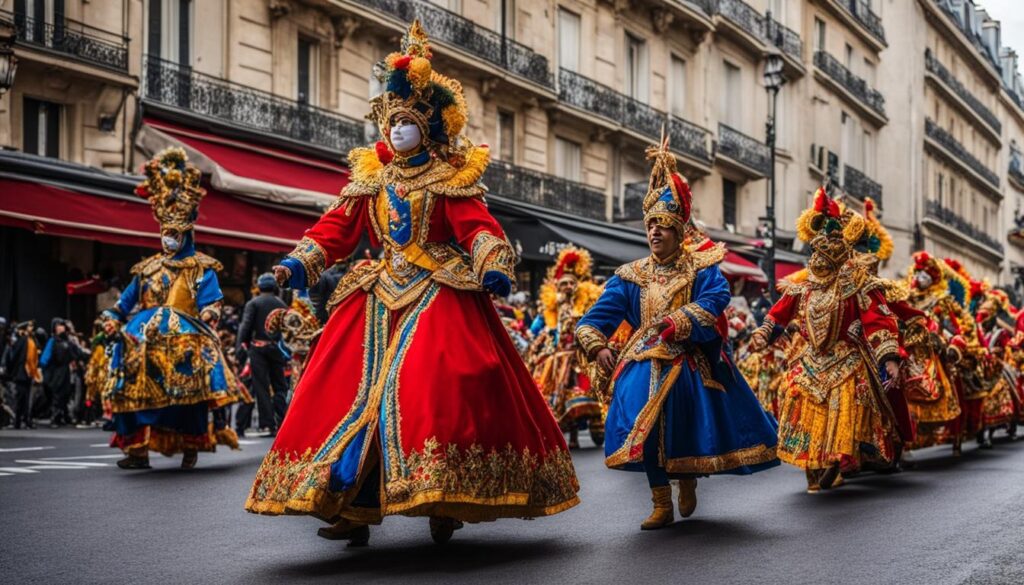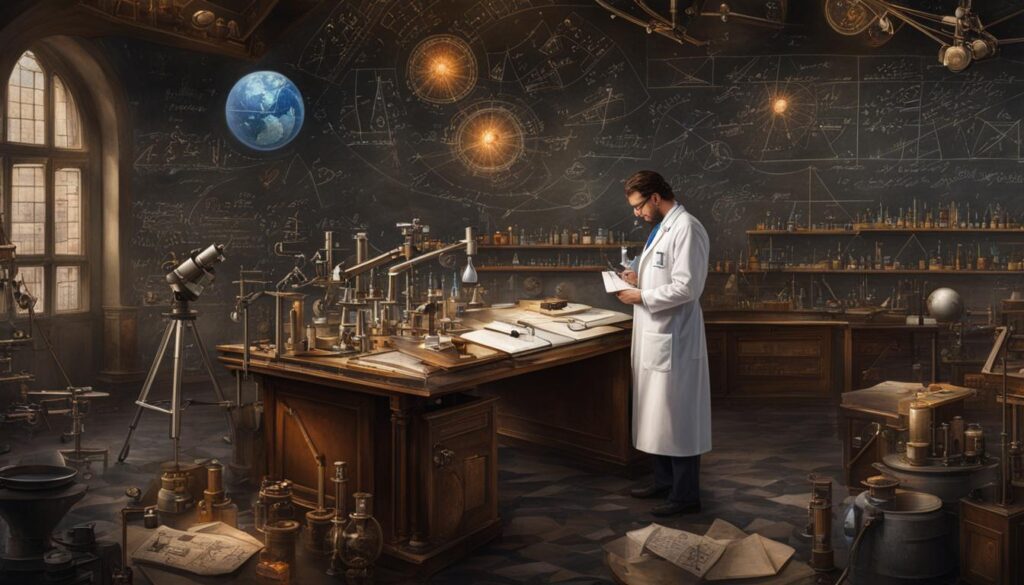Welcome to the fascinating world of French history and culture! Whether you’re a complete beginner or looking to expand your knowledge, this guide is the perfect starting point for your journey.
France is renowned for its rich and diverse cultural heritage, from its exquisite art and literature to its world-famous cuisine and iconic landmarks. By learning about French history and culture, you can gain a deeper understanding of the country’s customs and traditions, as well as its influence on the world.
With this beginner’s guide to French history and culture, you’ll explore the key aspects of France’s past and present, from its ancient Gauls to its contributions to science and technology. You’ll also discover the customs, social norms, and etiquette practices that shape interactions in France, along with the basics of the French language and communication.
Whether you’re planning a trip to France or simply want to expand your cultural knowledge, this guide will provide you with an essential resource for learning about French history and culture. So, what are you waiting for? Start your journey today!
Understanding the Basics of French History
Are you ready to dive into the rich history and culture of France? Let’s start by exploring the basics. French history spans over 2,000 years and has seen numerous wars, revolutions, and cultural developments. By understanding the key events and figures, you’ll gain a better appreciation for the country’s heritage.
The Beginnings of French History
The history of France begins with the ancient Gauls, a Celtic people who inhabited the region in the 5th century BCE. Over the centuries, France would become a battleground for various conflicts, including the Hundred Years’ War, the French Revolution, and both World Wars. Despite the turmoil, France emerged as one of the most influential cultural centers in the world.
Significant Milestones in French History
| Event | Date |
|---|---|
| The French Revolution | 1789-1799 |
| World War I | 1914-1918 |
| World War II | 1939-1945 |
| The Reign of Louis XIV | 1643-1715 |
These are just a few of the major events that have shaped French history. Each of these milestones has had a significant impact on the country’s cultural identity and heritage.
Influential Figures in French History
- Napoleon Bonaparte – military leader and emperor
- Joan of Arc – heroine of the Hundred Years’ War
- Voltaire – writer, philosopher, and advocate of freedom of speech
- Marie Curie – scientist and pioneer in the field of radioactivity
These are just a few of the countless individuals who have left their mark on French history. Whether through politics, art, or science, their contributions have helped shape the country and the world as we know it.
Exploring French Culture
As you learn about French history, it’s important to remember that culture and heritage are deeply intertwined. French culture is known for its elegance, sophistication, and emphasis on beauty. From art and literature to fashion and cuisine, exploring French culture is an essential part of understanding the country’s history.
Now that you have a basic understanding of French history, it’s time to delve deeper into the rich culture of this fascinating country. In the next section, we’ll explore the traditions and customs that have defined French culture throughout history.
Exploring the Cultural Traditions of France
France is a hub of cultural activity, with essential aspects of French history and culture embodied in its literature, arts, music, and fashion. Understanding French culture can deepen your appreciation and make you fall in love with the country and its people. Here are some of the prominent cultural traditions that have defined French culture throughout history.
The Arts
France is home to some of the world’s most famous artistic and cultural movements. From Impressionism to Cubism, French artists have led the way in shaping the world’s artistic traditions. Some of the most famous artists born in France include Claude Monet, Auguste Renoir, and Edgar Degas, renowned for their paintings celebrating everyday life, colorful landscapes, and intricate details.
French literature is another cultural pillar, with writers like Victor Hugo, Marcel Proust, and Gustave Flaubert contributing significantly to international literature.
Music
France has a rich musical tradition that dates back to the medieval era, with classical music and opera among the most prominent. French music is known for its elegance, and some of the most renowned musicians, such as Maurice Ravel and Claude Debussy, were French-born. In modern times, French pop, also known as chanson, has gained worldwide popularity, creating legendary talents such as Edith Piaf and Charles Aznavour.
Fashion
France is undoubtedly the fashion capital of the world, with a long history of creating famous designers and fashion houses. The French fashion industry began to gain attention in the 1700s, and the trend continues today, with iconic brands such as Chanel, Dior and Yves Saint Laurent leading the way. French fashion is known for its elegance, sophistication, and the attention to detail by designers, making it a global fashion trendsetter.
“Fashion is not something that exists in dresses only. Fashion is in the sky, in the street; fashion has to do with ideas, the way we live, what is happening.” – Coco Chanel
Cuisine
French cuisine is famed worldwide for its sophistication and flavors. French cuisine is a combination of traditions, flavors, and techniques, and it’s no wonder that France has produced some of the world’s most famous chefs, such as Paul Bocuse and Auguste Escoffier. The French enjoy eating fresh, quality ingredients and savoring their meals alongside quality wine. Some of the famous French dishes include escargots, foie gras, and ratatouille.
Dance
Dance is another essential aspect of French culture. France has famous ballet companies like the Paris Opera Ballet and the Lyon Opera Ballet, known worldwide for their elegant and rhythmic presentations. Other popular French dance styles include the can-can, a high-energy dance, and the tango, a sensuous dance that originated in Argentina but gained popularity in France.
The Culinary Delights of France
French cuisine is famed for its elegance, flavor, and attention to detail. It is considered one of the world’s finest culinary traditions. French food utilizes fresh, high-quality ingredients and is known for its richness and complexity.
Regional Specialties
France is divided into many regions, each with its own unique cuisine. Here are some of the most famous regional specialties:
| Region | Dish |
|---|---|
| Normandy | Coquilles Saint-Jacques (scallops in cream sauce) |
| Brittany | Galettes (buckwheat pancakes) |
| Provence | Ratatouille (vegetable stew) |
| Lyon | Coq au Vin (chicken cooked in red wine) |
Importance of Food in French Culture
In France, food is not just a means of sustenance. It is an integral part of the culture and a way of life. Meals are meant to be savored and enjoyed, and long leisurely lunches are a common occurrence. French cuisine is also closely tied to the country’s history and traditions, and many dishes have been passed down through generations.
“France is the country where the money falls apart and you can’t tear the toilet paper.” – Billy Wilder
French Wines
France is renowned for its wines, which are considered some of the best in the world. The country produces a wide range of wines, from dry whites to full-bodied reds. Some of the most famous French wine regions include Bordeaux, Burgundy, and Champagne.
French Cheese
French cheese is another important aspect of the country’s culinary tradition. There are over 400 different types of French cheese, each with its unique flavor and texture. Some of the most famous French cheeses include Brie, Camembert, and Roquefort.
Exploring French history and culture without delving into its culinary delights would be incomplete. Food is an essential aspect of French culture and heritage, and discovering its culinary traditions is a must for any beginner’s guide to French history and culture.
Understanding French Society and Etiquette
When exploring French history and culture, it’s essential to understand the societal norms and etiquette practices that shape interactions in France. As a beginner’s resource for French history and culture, this section will provide you with insights on how to navigate social situations and embrace the French way of life.
Social Customs
French society follows a hierarchical structure, where respect for authority is highly valued. It’s common to address people by their titles, such as Monsieur or Madame, even if you don’t know them personally. When meeting someone, it’s customary to shake hands and maintain direct eye contact. French people also tend to stand closer together when speaking than in some other cultures.
One of the most crucial aspects of French society is the concept of la politesse, or politeness. French people value politeness highly and expect it in all interactions, whether in the workplace or with friends and family. Saying “bonjour” (good morning) or “bonsoir” (good evening) when entering a shop or greeting someone is expected, as is saying “au revoir” (goodbye) when leaving. Using “s’il vous plaît” (please) and “merci” (thank you) are also essential when making requests or receiving help.
Dining Etiquette
France is famous for its fine dining, and learning proper dining etiquette is crucial. If you are invited to a French home for dinner, it’s customary to bring a small gift such as wine or flowers. When dining out, the bill is typically split between the guests rather than splitting it evenly.
When eating a meal in France, it’s essential to use proper cutlery and table manners. Keep your hands on the table at all times and avoid resting your elbows on the table. Wait for everyone to be served before starting to eat and pace yourself with the other diners. If you’re unsure of which fork or spoon to use, watch your hosts for guidance.
Professional Etiquette
In the workplace, French people are formal and follow strict protocol. It’s essential to dress professionally and arrive on time for meetings. When beginning a conversation, it’s customary to inquire about the other person’s well-being and engage in small talk before getting down to business. Interrupting someone when they are speaking is considered rude, and it’s best to wait for the other person to finish before responding.
French Language and Communication
Learning the French language is an essential aspect of exploring French history and culture. As a beginner’s resource for French history and culture, we will provide you with an introduction to the French language and communication practices.
The French language is known for its beauty and complexity, and although it might seem challenging at first, there are many resources available to help you learn. Before diving into the language, let’s take a look at the importance of communication in French society.
The Importance of Communication in French Society
In France, clear and direct communication is highly valued. It’s important to be polite and respectful, but also to be straightforward in expressing your thoughts and opinions. When greeting someone, it’s customary to shake hands and use formal titles such as “Monsieur” or “Madame” followed by the person’s last name.
In formal settings, it’s important to maintain a certain level of distance and professionalism, but in more relaxed situations, such as with friends or family, it’s common to use informal language and humor.
Basic French Phrases and Expressions
As a beginner exploring French history and culture, it’s helpful to learn some basic French phrases and expressions. Here are a few essential ones to get you started:
- Bonjour – Hello
- Comment ça va? – How are you?
- Merci – Thank you
- Je m’appelle – My name is
- Excusez-moi – Excuse me
Resources for Learning French
There are many resources available online for learning French, including podcasts, videos, and apps. Some popular options include Duolingo, Babbel, and Rosetta Stone. Additionally, you can consider taking a class at a local community college or language center.
“Learning a new language is not only learning different words for the same things, but learning another way to think about things.”
-Flora Lewis
Exploring French Architecture and Landmarks
France is a country renowned for its beautiful architecture and iconic landmarks. From towering cathedrals to majestic castles, there is no shortage of stunning sights to behold. Exploring French architecture and landmarks is an essential aspect of learning about French history and culture.
The Eiffel Tower
No landmark is more famous than the Eiffel Tower, one of the most recognizable structures in the world. Built for the 1889 World’s Fair, this iconic tower stands at over 1,000 feet tall and offers breathtaking views of Paris. It has become a symbol of not only the city but also of France itself.
Notre-Dame Cathedral
Notre-Dame Cathedral is another architectural marvel that attracts millions of tourists each year. This Gothic cathedral took over 200 years to build and boasts stunning stained-glass windows, intricate stonework, and breathtaking rose windows. The cathedral is currently undergoing restoration after a devastating fire in 2019.
Palace of Versailles
The Palace of Versailles is a grand royal château located just outside of Paris. This opulent palace was once the residence of French royalty, including King Louis XIV, and features stunning gardens, elaborate fountains, and ornate ballrooms. It’s a must-see for anyone exploring French history and culture.
Mont Saint-Michel
Mont Saint-Michel is a medieval fortress and monastery situated on an island off the coast of Normandy. The stunning structure features narrow winding streets, Gothic churches, and a towering abbey at its peak. It has been a place of pilgrimage for over 1,000 years and is a UNESCO World Heritage site.
French Festivals and Celebrations
French culture is renowned for its vibrant festivals and celebrations, which provide a glimpse into the country’s rich heritage. As a beginner exploring French history and culture, it’s essential to understand the significance of these cultural events.
Bastille Day
One of the most famous French celebrations is Bastille Day, which takes place on July 14th every year. This holiday commemorates the storming of the Bastille fortress in Paris on July 14th, 1789, which marked the beginning of the French Revolution. Bastille Day is celebrated with parades, fireworks, and street parties throughout France.
Carnival
Carnival is another popular festival in France, celebrated in the weeks leading up to Lent. The most famous carnival takes place in Nice, where colorful parades and music performances take place in the streets. The carnival culminates with the burning of a giant effigy on the waterfront.
Christmas Traditions
Christmas is a significant holiday in France and is celebrated with a variety of traditions. One of the most popular traditions is the creation of a Nativity scene, or crèche, which depicts the birth of Jesus. Another popular tradition is the Yule log, or bûche de Noël, which is a delicious dessert made from rolled sponge cake and chocolate cream.
Fête de la Musique
Fête de la Musique, or Music Day, is a unique celebration that takes place on June 21st in France and around the world. On this day, musicians of all genres and skill levels perform in the streets, parks, and public spaces. This festival offers a fantastic opportunity to experience the diversity of French music and culture.
Whether you’re a beginner or an experienced explorer of French history and culture, festivals and celebrations are an essential aspect of the country’s cultural heritage. Attend one of these events and immerse yourself in the joyous atmosphere and traditions of France.
French Influence on Art and Fashion
France has long been known for its contribution to the world of art and fashion. From haute couture to timeless masterpieces, French artists and designers have shaped the way we perceive beauty and style.
Some of the most famous names in the fashion industry come from France. Coco Chanel, the founder of Chanel, was a pioneer in women’s fashion, introducing the concept of simple, elegant lines that allowed women to move and breathe freely. The iconic red-soled shoes of Christian Louboutin have been worn by celebrities and fashion lovers alike, becoming a symbol of luxury and sophistication.
The impact of French artists on the art world cannot be overstated. The Impressionist movement, which originated in France in the late 19th century, revolutionized the way artists approached color and light in their work. Painters like Claude Monet, Edgar Degas, and Pierre-Auguste Renoir created works that captured the essence of a moment, emphasizing the fleeting nature of life.
The French have also played a significant role in the development of modern art. The Cubist movement, which was founded by Pablo Picasso and Georges Braque, rejected traditional forms of representation and focused on the abstract qualities of color, shape, and texture. French artist Henri Matisse also contributed to the development of modern art through his use of bold colors and simplified forms.
Through their innovative designs and artistic expressions, French artists and designers have shaped the way we see and experience the world. Their influence continues to inspire and captivate us today, making France a true cultural powerhouse.
French Contributions to Science and Technology
Exploring French history and culture is not limited to its arts and literature. The French have also made significant contributions to science and technology, which have shaped the world we live in today. As a beginner’s resource for French history and culture, it’s essential to understand how France has influenced the field of science and technology.
One of the most notable French scientists is Marie Curie, who, alongside her husband Pierre Curie, discovered the elements polonium and radium. Her discovery led to groundbreaking research in radioactivity and earned her two Nobel Prizes in Physics and Chemistry, making her the first woman to receive such accolades.
France has also contributed to the field of medicine, with Louis Pasteur being a prominent figure. Pasteur’s work on germ theory and pasteurization revolutionized the understanding and treatment of many diseases. He also developed vaccines for anthrax and rabies.
In the field of mathematics, Blaise Pascal and Pierre de Fermat made significant contributions. Pascal is known for inventing the mechanical calculator, while Fermat worked on probability theory and number theory.
The French have also made notable contributions to transportation. In the late 18th century, Nicolas-Joseph Cugnot invented the first self-propelled vehicle, a steam-powered carriage. In the 19th century, Gustave Eiffel designed the Eiffel Tower, which was the tallest structure in the world when it was completed.
“The main merit of science is probably not so much that it trains your thoughts as that it enables you to think for yourself.” – Louis Pasteur
Through their contributions to science and technology, the French have shown the world their innovation, creativity, and intelligence. These contributions continue to impact and shape our lives today.
French Influence on Literature and Philosophy
Exploring French history and culture reveals the significant contributions made by France in the world of literature and philosophy. French literature and philosophy have been influential in shaping intellectual thought and have given birth to some of the most famous literary masterpieces and philosophical movements in history.
French writers such as Victor Hugo, Emile Zola, and Gustave Flaubert have produced works that have gained international recognition and inspired many others. The literary movement of existentialism emerged in France, with writers such as Jean-Paul Sartre and Albert Camus exploring the complexities of human existence through their works.
French philosophy has also been immensely influential throughout history. The Enlightenment, which emphasized reason and individualism, found its roots in France, with the likes of Voltaire and Rousseau leading the way. French intellectuals such as Michel Foucault and Jacques Derrida have also contributed significantly to postmodern philosophy.
The Importance of French Literature and Philosophy Today
Exploring the works produced by French writers and philosophers not only provides valuable insights into the intellectual history of France, but also offers a wider perspective on global intellectual thought. French literature and philosophy have influenced fields such as politics, art, and psychology, and their relevance and importance have only continued to grow over time.
The study of French literature and philosophy can also provide insights into French culture and society. Understanding the thoughts and ideas that have shaped a nation can offer a deeper understanding and appreciation of its people and their values.
“The artist is a receptacle for emotions that come from all over the place: from the sky, from the earth, from a scrap of paper, from a passing shape, from a spider’s web.” – Pablo Picasso
As Pablo Picasso illustrates in this quote, the works of French writers and philosophers have transcended geographical and cultural boundaries, continuing to inspire and influence generations of artists and thinkers worldwide.
Conclusion
Congrats! You have reached the end of this beginner’s guide to French history and culture. By now, you should have a basic understanding of the essential aspects of French history and culture and be ready to further explore the richness of this heritage.
Remember, learning about French history and culture is an exciting journey that requires patience and an open mind. With the information provided in this guide, you are well on your way to becoming a French history and culture enthusiast.
Keep in mind that there is much more to learn and discover about French history and culture. Don’t hesitate to seek out additional resources and explore further. The more you learn, the more you will appreciate the beauty and complexity of French history and culture.
Thank you for choosing this guide to kickstart your journey in learning about French history and culture. We hope you enjoyed it and found it helpful as you begin your exploration of this fascinating heritage. Bon voyage!




























